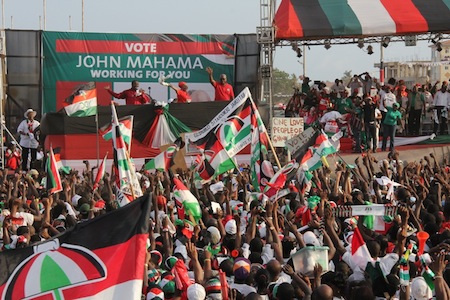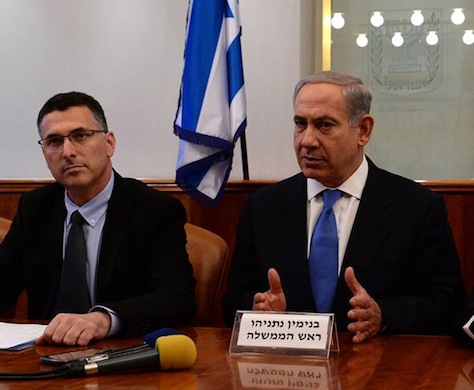
Although much of the international (and national) attention has been on Ghana’s presidential election tomorrow, it’s important to note that Ghana will also conduct its parliamentary elections as well.
The elections are conducted, rather straightforwardly, in 275 separate single-member constituencies — it’s a first-past-the-post system, so the winner of a plurality of support is elected as a member of parliament.
With the presidential race still incredibly competitive (some polls show incumbent president John Mahama leading, and others show challenger Nana Akufo-Addo with a lead), it’s likely that the parliamentary result will likewise be tight as well, though if no presidential candidate wins over 50% of the vote, the race will go to a runoff on December 28, which would mean that Ghanaians will know which party will control the parliament when they decide who will go to Jubilee House as Ghana’s president. That could strongly influence whether Mahama or Akufo-Addo win a potential runoff.
Currently, Mahama’s National Democratic Congress (NDC) controls 114 seats in Ghana’s unicameral parliament, while Akufo-Addo’s New Patriotic Party controls 107, with seven additional parliamentarians who are either independents or represent smaller parties. The NDC won control of the parliament in the 2008 elections that saw the NDC’s presidential candidate, John Atta Mills, triumph over Akufo-Addo in an incredibly tight presidential race. Previously, the NPP held 128 seats and the NDC just 94 seats.
So whatever happens tomorrow, it seems unlikely that either the NPP or the NDC will sweep to a lopsided victory in the parliamentary elections.
That’s especially true given Ghanaian voting patterns over the past decade — the NPP’s traditional support comes from the south of the country, the heartland of the Akan ethnicity group that’s the largest ethnic group in Ghana (nearly 11 million out of a population of over 24 million people). In fact, the maps of where the NPP led in 2008 in both the presidential and parliamentary election, and the map of the Akan heartland within Ghana, are nearly interchangeable. The NDC has traditionally won its greatest support in the more Muslim north and along all of Ghana’s eastern border — namely, those areas that are not dominated by the Akan.
Indeed, if either Mahama or Akufo-Addo narrowly emerge with a lead of over 50% tomorrow, it’s even possible that Ghana could elect one party to control the Ghanaian presidency and another party to control the parliament.
The election will also feature a 45-member increase in the number of seats in Ghana’s parliament (from 230 to 275) in order to balance population growth, which could also create additional variability with respect to the ultimate result. Continue reading Simultaneous parliamentary elections could lead to split Ghanaian government →
![]()

